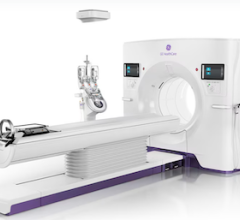August 25, 2008 - Philips will lead a new European Union (EU) funded research project called "euHeart," which uses computer models of the heart as simulation tools for doctors to predict outcomes.
The euHeart consortium aims to develop advanced computer models of the human heart that can be personalized to patient-specific conditions using clinical data from various sources, such as CT (Computed Tomography) and MRI (Magnetic Resonance Imaging) scans, measurements of blood flow and blood pressure in the coronary arteries (which feed the heart muscles) and ECGs (Electrocardiograms).
These computer models will integrate the behavior of the heart and the aorta at molecular, cellular, tissue and organ-level. They will also incorporate clinical knowledge about how cardiovascular disease disturbs the correct functioning of the heart at these levels. As a result, it may be possible to develop simulation tools that doctors can use to predict the outcome of different types of therapy, and because the models will be personalized to individual patients, the therapy could be equally personalized.
As an example, one way of treating heart rhythm disorders is a minimally invasive procedure known as radiofrequency ablation. During this procedure, a catheter is inserted into the patient's heart and the tissue responsible for propagating abnormal electrical signals through the heart muscle is destroyed using heat from a radio-frequency field generated at the tip of the catheter. At the moment, doctors have to rely on their experience to decide which areas of tissue to destroy - a task that is complicated by the fact that the electrical activity in every patient's heart is subtly different. With the aid of a computerized model that reflects the patient's unique heart structure and function, doctors may be able to test the results of destroying different areas of tissue before they have to operate on the patient.
For more information: www.medical.philips.com


 February 02, 2026
February 02, 2026 









